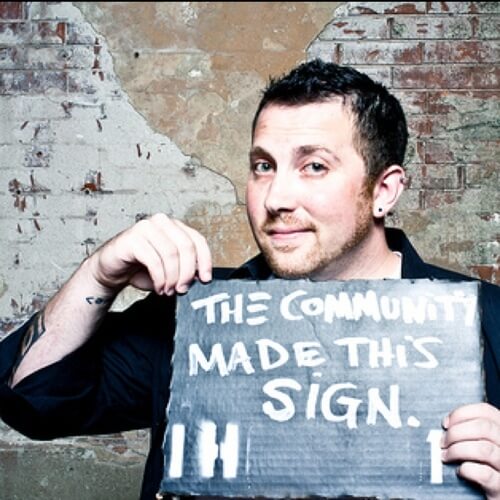I’ve never considered myself a risk taker. I don’t like risks. I don’t like feeling out of control.
CTFD stands for “Calm The Fuck Down.”
I do like making things up as I go. I do like looking for patterns, for possibilities. Given a choice between two things, my favorite option is almost always going to be “hidden option c”. But at the end of the day, I make a choice and get it done.
JFDI stands for “Just Fucking Do It.”
While CTFD and JFDI don’t just apply to big decisions, this post is a great reminder that being in control of how we react to risks is one of the most important skills we can hone.
These 4 tips are extremely useful for even the smallest decisions, but only become more important as the size of your decisions and risks increases:
1. Don’t just focus on the downside; understand the opportunity.
In almost all cases, there’s only a finite number of bad things that can happen actually happen. It’s your job to consider that finite number of bad things and mitigate them. Not stop them, but make a concerted effort to keep them from happening. In the end, you can’t always stop something from happening…but being so focused on stopping something bad from happening might be keeping something of relative greater good from happening.
So you need to consider the infinite number of good things that can happen.
Again, so many great things are stopped from happening in the first place because someone is concerned about a bad thing that hasn’t even happened yet.
2. Understand that you will shape the outcome.
Many times, people avoid risk taking because they feel like the outcome is out of their hands. That’s usually because the outcome they’ve envisioned is too big, too distant, and too many steps away.
Very few outcomes happen “in a flash”. They’re a build. They’re a series of decisions. Usually a series of very small, incremental decisions.
If you stay aware of the long term desired outcome, but only focus on the next step and the decision in front of you, you’ve got a better chance of shaping the outcome of the small decision – the small risk.
There’s also almost always more than one path to your long term goal. Just because you don’t like the risk of one step doesn’t mean you’ll never reach the finish line. Look for other options. Think of it like trying to find the door that leads to the next hallway with the most doors instead of just trying to find the first door that opens.
Sometimes, the path of least resistance is a dead end. That doesn’t mean the path of second least resistance is.
3. Know who you can rely on.
It’s trite to say “your team matters”, but it really does. Find allies. Find teammates. But also find mentors.
You’re likely to find a lot of people who will be interested in working with you – but not all of them will be good collaborators.
True collaborators are like partners. They give of themselves to the goal because they share the same goal. Even when your opinions differ, your egos matter less than the outcome of the goal.
Don’t be afraid to remove someone from your team roster if you aren’t confident that you can count on them.
4. Stick with it.
Quit being an action junkie. JFDI isn’t “Just Fucking Do Everything” or “Just Fucking Do Anything”. Be thoughtful about how your time is spent because you’re in this for the long haul.
The first 3 months of JFDI feel different from the first 2 years of JFDI which feel different from the first 4 years of JFDI.
JFDI isn’t a singular action. It’s a different way of considering what’s in front of you.
Be patient. Stay humble. Play the long game.
 I am always thinking about the intersection of people, relationships, trust and business. I founded
I am always thinking about the intersection of people, relationships, trust and business. I founded